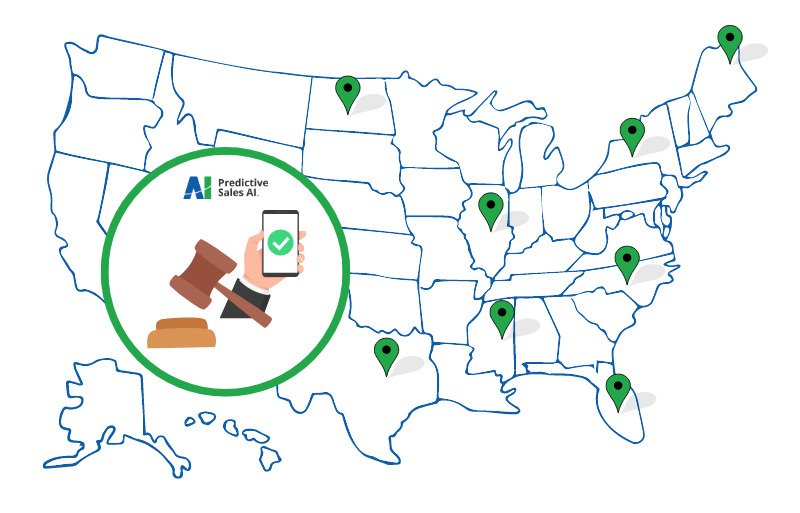What is TCPA?
The TCPA is US Federal legislation that was enacted in 1991 and aims to protect consumers from repetitive, unwanted, or intrusive calls from telemarketers. Over the years its scope has increased to include emerging technologies and telemarketing trends, including the establishment of a National Do Not Call Registry and to encompass SMS messaging to consumers.

It’s important that businesses of all sizes are aware of the ever-changing landscape and build good business practices in compliance with these laws.
TCPA Compliance Essentials
- Consumer Explicit Consent: For marketing calls and text messages made using an auto-dialer, businesses must obtain prior express written consent from the consumer. This consent must be clear and conspicuous and it must indicate that the consumer agrees to receive such communications.
For non-marketing and informational messages, like inquiries, businesses are still required to obtain express consent but it does not need to be written. - Checking Phone Numbers: Telemarketing activities of businesses have an additional obligation to verify that phone numbers are not on the National Do Not Call Registry or have not been re-assigned.
- Maintain Do Not Call Processes: Businesses should maintain and regularly update an internal list of individuals who have requested not to be contacted. Businesses should provide a reasonably simple method by which to opt-out and should then ensure timely and accurate compliance with these requests.
- Proper Calling Hours: It is crucial that businesses have protocols set up to ensure calls are placed to consumers within the appropriate hours - typically between 8AM and 9PM local time. This can vary based on the state you are doing business in.
- Proper Identification: Callers must disclose who is calling and the purpose of the call at the beginning of the interaction.
- Call Abandonment Rates: In addition to the above requirements, call abandonment rates must also be evaluated to ensure they are meeting expectations. For telemarketing calls that are answered, no more than 3% can be abandoned for any 30-day period. It must either be transferred to a live agent or the call recipient is presented with a recording meeting identification requirements or a menu that includes opt-out options.
Key TCPA Updates
2024 has already seen new obligations under TCPA, and more are on the horizon for early 2025. Let’s look at what those are and how you can protect yourself.
- March 2024: Businesses must verify if phone numbers are on the National Do Not Clal Registry before sending marketing messages.
- July 2024: The text blocking rule came into effect requiring wireless providers to block text messages from numbers identified by the FCC as likely to be sending illegal texts.
- January 2025: Businesses will be required to obtain express, written, one-to-one consent, effectively closing the “lead generator loophole”.
Common TCPA Compliance Challenges
Obtaining and Tracking Consumer Consent
- Implement robust consent processes to track contacts and consents at every step.
- Accurately capture opt-out requests and swiftly remove those consumers from marketing activities
- Regularly audit consent records to ensure compliance.
Establishing Systems to Monitor Compliance
- Develop comprehensive processes to monitor and enforce TCPA compliance across all marketing and communications.
- Utilize technology solutions, like Know Your Customer, to streamline consent tracking and compliance monitoring.
- Provide clear guidelines and resources for your team to recognize and adhere to compliance protocols.
Responding to Compliance Issues
- Set up procedures for quickly addressing any compliance issues that arise.
- Maintain thorough documentation of compliance efforts and any actions taken to demonstrate a proactive approach to TCPA compliance.
Staying Ahead of TCPA Compliance
As TCPA regulations continue to evolve, it's crucial for your business to stay proactive in protecting itself. Implementing strong protocols, keeping your team informed, and utilizing the right tools are essential steps to mitigate risks and ensure compliance.
With PSAI, you can effectively monitor consent for both online and offline contacts and track their customer journey, helping you maintain compliance and build trust with your customers.





